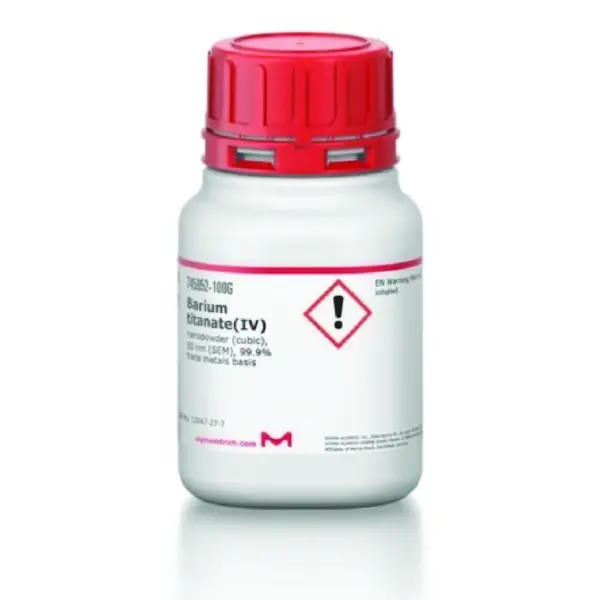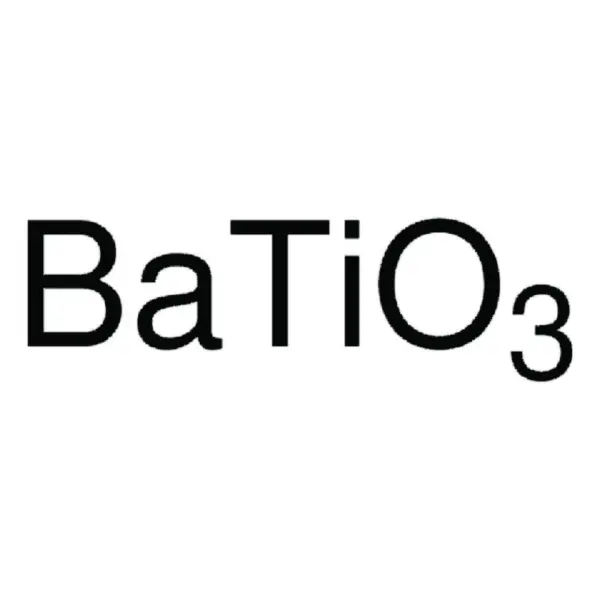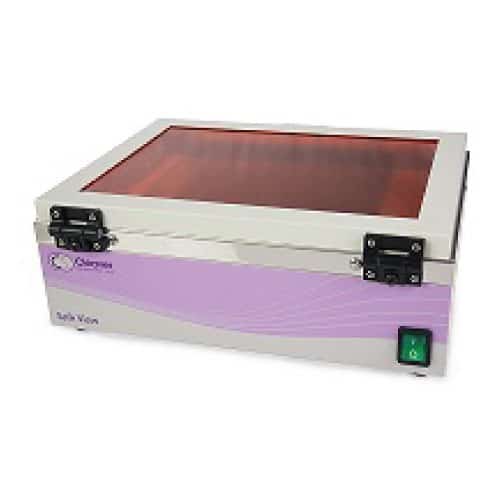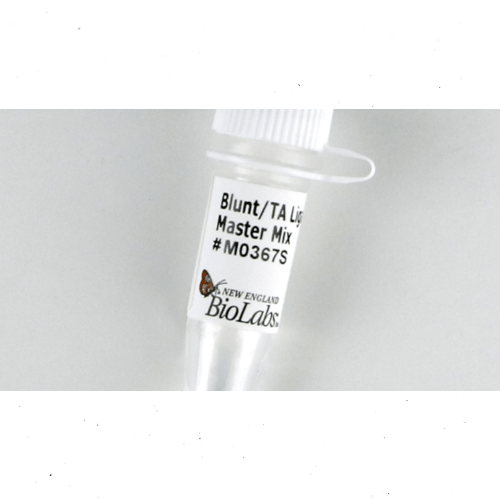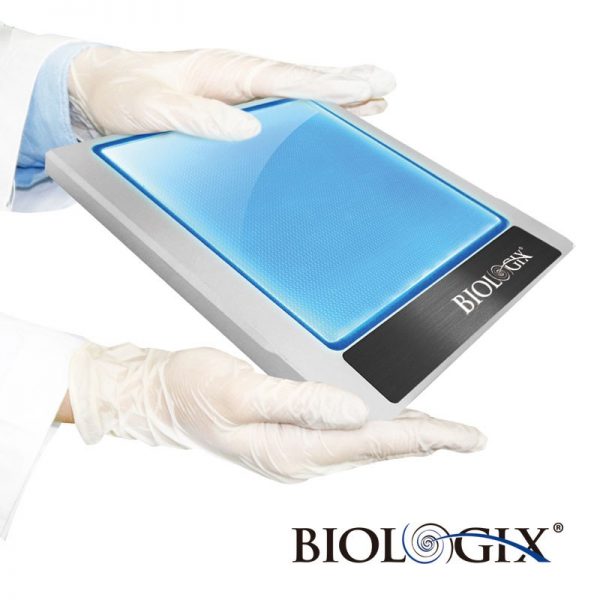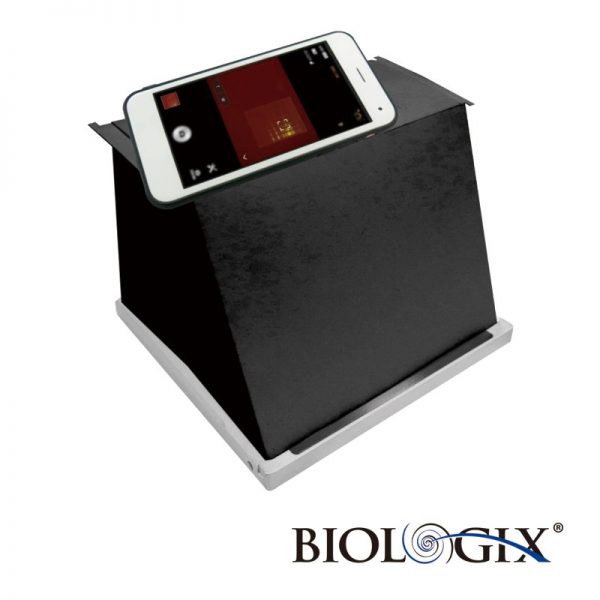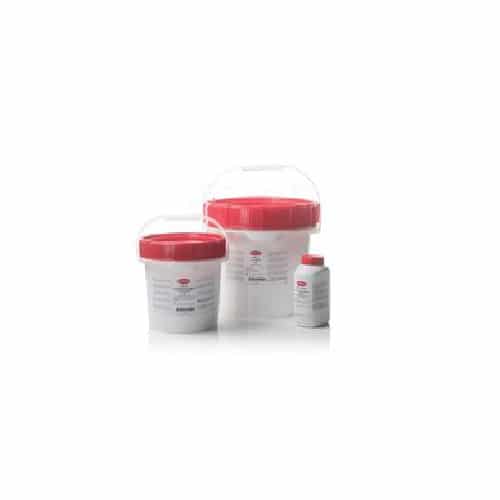
Baird Parker Agar Base 500g, Oxoid
RM400.00Brand:
Thermo ScientificTM OxoidTM
Baird Parker Agar Base, Oxoid is suitable for the isolation and enumeration of Staphylococcus aureus, with high selectivity and sensitivity. It contains carefully balanced selective inhibitory agents, glycine, lithium, and tellurite, to suppress the growth of most of the bacteria present in foods without inhibiting coagulase-positive staphylococci. The presence of egg yolk emulsion and sodium pyruvate aid the recovery of damaged cells for presumptive identification of Staphylococcus aureus in food specimens.
| Typical Formula * |
gm/litre
|
| Pancreatic digest of casein |
10.0 |
| Meat extract |
5.0 |
| Sodium pyruvate |
10.0 |
| Yeast extract |
1.0 |
| Glycine |
12.0 |
| Lithium chloride |
5.0 |
| Agar |
20.0 |
| pH 7.2 ± 0.2 @ 25°C |
Baird Parker Agar Base, Oxoid Preparation:
Suspend 6.3g of Baird-Parker Agar Base (RPF) in 90ml of distilled water. Bring to the boil to dissolve completely. Sterilise by autoclaving at 121ºC for 15 minutes. Cool to 48ºC and add 1 vial of RPF Supplement (SR0122A), reconstituted as directed. Mix well and pour plates.
Storage Conditions and Shelf Life
Store the dehydrated medium at 10-30°C and RPF Supplement below 0°C. Use before the expiry date on the label.
Prepared plates of the medium are best used freshly prepared.
Precautions
Regard all suspicious colonies as Staphylococcus aureus regardless of negative reactions in the medium and carry out further tests.
Colonies of some contaminating organisms growing in close proximity to the coagulase positive colonies may partially digest the coagulase halo reaction.
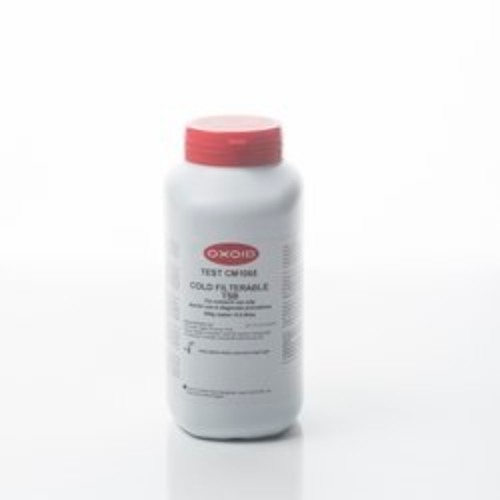
Baird-Parker Agar (ISO) 500g
RM604.00Brand:
Thermo ScientificTM OxoidTM
Isolate, enumerate, and identify coagulase positive Staphylococcus aureus in food samples with selective Thermo Scientific™ Oxoid™ Baird Parker Agar (ISO) Base (Dehydrated) while adhering to ISO 6888-1:1999.
Baird Parker Agar (ISO) Base, Oxoid Composition
| Typical Formula* | gm / litre |
| Pancreatic digest of casein | 10.0 |
| Meat extract | 5.0 |
| Yeast extract | 1.0 |
| Sodium pyruvate | 10.0 |
| L-glycine | 12.0 |
| Lithium chloride | 5.0 |
| Agar | 20.0 |
| pH 7.2 ± 0.2 @ 25°C |
Baird Parker Agar (ISO) Base, Oxoid Preparation:
Suspend 63g of Baird-Parker Agar (ISO) Base in 1,000ml of distilled water. Boil to dissolve the medium and sterilise by autoclaving at 121°C for 15 minutes. Cool to 47°C and aseptically add 50ml of Egg Yolk Tellurite Emulsion (SR0054). Mix well and pour into sterile Petri dishes.
Storage conditions and Shelf life
Store the dehydrated medium at 10-30°C and use before the expiry date on the label.
The prepared medium is best used freshly prepared, but may be suitable for longer storage following in-house validation.
Precautions
Atypical colonies have the same size as typical colonies but can be shining black with or without a narrow white edge; the clear zone or opacity halo can also be absent or barely visible. Grey colonies, free of clear zone, can also be regarded as atypical.
Regard all typical and atypical colonies as coagulase-positive staphylococci irrespective of negative reactions on the medium and carry out further tests.
Colonies of some contaminating organisms growing in close proximity to the coagulase positive colonies may partially digest the coagulase halo reaction.

Baird-Parker Agar Base (Modified) 500g
RM494.00Brand:
Thermo ScientificTM OxoidTM
- The Oxoid Baird-Parker RPF Agar Base is a selective medium for the isolation and enumeration of coagulase positive staphylococci from food.
- For use with RPF supplement, Part No. SR0122A
- Do not use Egg Yolk Tellurite Emulsion.
Baird-Parker Agar Base (RPF), Oxoid Composition
| Typical Formula* |
gm/litre |
| Pancreatic digest of casein |
10.0 |
| Meat extract |
5.0 |
| Sodium pyruvate |
10.0 |
| Yeast extract |
1.0 |
| Glycine |
12.0 |
| Lithium chloride |
5.0 |
| Agar |
20.0 |
| pH 7.2 ± 0.2 @ 25ºC |
Baird-Parker Agar Base (RPF), Oxoid Preparation:
Suspend 6.3g of Baird-Parker Agar Base (RPF) in 90ml of distilled water. Bring to the boil to dissolve completely. Sterilise by autoclaving at 121ºC for 15 minutes. Cool to 48ºC and add 1 vial of SR0122A, reconstituted as directed. Mix well and pour plates.
Storage conditions and Shelf life
Store the dehydrated medium at 10-30°C and RPF Supplement below 0°C. Use before the expiry date on the label.
Prepared plates of medium are best used freshly prepared.
Precautions
Colonies of some contaminating organisms growing in close proximity to the coagulase positive colonies may partially digest the coagulase halo reaction.
Barium titanate(IV), nanopowder (cubic), 50 nm (SEM), 99.9% trace metals basis – Sigma-Aldrich
RM1,979.00Brand:
Sigma-Aldrich
Synonyms
BaTiO3 nanoparticles, Barium titanium oxide, Barium titanium trioxide, Titanium barium oxide
Cas No.
12047-27-7
General description
This barium titanate(IV) nanopowder is a very fine white powder made of barium titanate nanoparticles with an average particle size of 50 nm. The synthesis is controlled so that the material crystallizes in the cubic polymorph, which is centrosymmetric with no spontaneous dipole.
Application
Barium Titanate is an effective lead free piezoelectric material and has been studied as a component of polymer nanocomposites and as a probe for cell imaging.

Basic Fuchsin – Technical Dye (10G)
RM0.00Brand:
Thermo ScientificTM OxoidTM
Oxoid Basic Fuchsin Indicator is a dye for use with Endo Agar Base, Part No. CM0479B and m Endo (LES) Agar Base, Part No. MM0551B.
Basic Fuchsin Preparation:
BR0050 should be dissolved to create a 10% w/v solution using 95% ethyl alcohol.
For each litre of culture medium use the amount described in the product reconstitution details. This should be in a 10% w/v solution of the dye dissolved in 50:50 ethanol/distilled water. E.g. For CM0479 add 6ml of a 10% w/v Basic Fuchsin solution per litre of medium.
The magenta dyes are closely related to known carcinogenic substances; therefore basic fuchsin should be handled with care, avoiding inhaling the powder or staining the skin with dye.
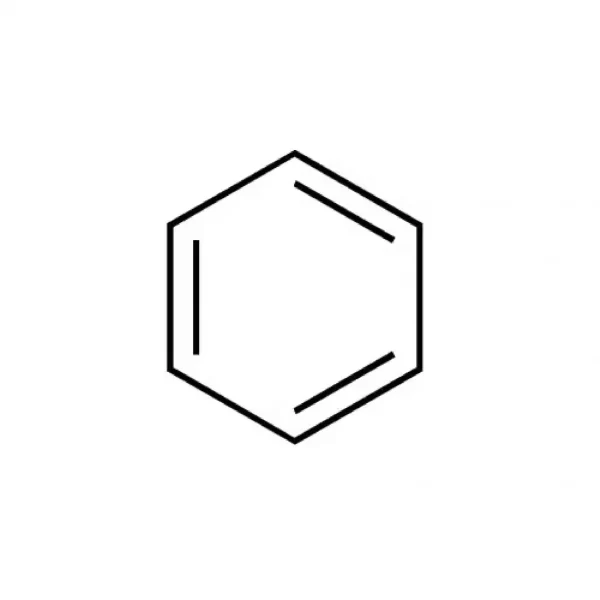
Benzene Anhydrous, 99.8% – Sigma-Aldrich
RM912.00Brand:
Sigma-Aldrich
Description
CAS Number: 71-43-2
Empirical Formula: C6H6
Molecular Weight: 78.11
Synonyms: –
Assay: 99.8%
Benzene is a six-membered aromatic compound that can undergo ionization induced by superhalogens, according to ab initio calculations. This compound is a frequently used industrial solvent but is also considered an air pollutant and a powerful carcinogen.
Benzene may be used in the formation of phenyl acetate by aerobic oxidation using Pd catalyst and acetic acid as solvent, formation of phenol by hydroxylation in the presence of mesoporous carbon nitride supported on vanadium catalyst and as a solvent to prepare nanoparticles of gallium nitride (GaN) by reacting Li3N and GaCl3 at 280°C.
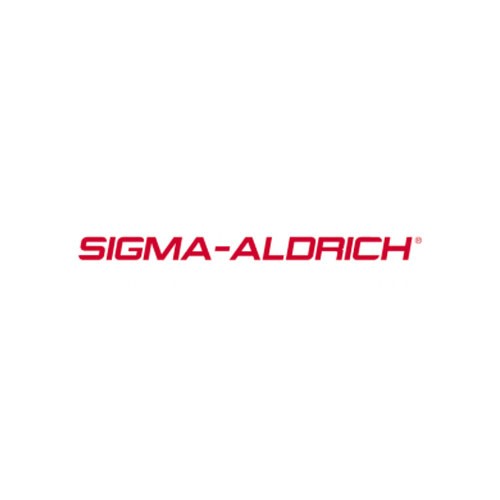
Benzyltriethylammonium Chloride, 99% (Sigma-Aldrich)
Price range: RM177.00 through RM818.00Brand:
Sigma-Aldrich
General description
These durable TrueNorth® Cool Container with Lid are for chilling temperature-sensitive samples. They have heavy insulation properties for the ultracold and are ideal for ice as well as ice-salt slurries.
Features and Benefits
• made from single-moulded polyurethane
• close-fit lid keeps evaporation to a minimum and features a comfortable recessed knob
• lid nests under the bucket to save space
• for low-temperature use to -196ºC at 1 bar
• stackable
• pour spout and large handles

Beta Lactam Reagent Disk 25Disk/VL
RM0.00Brand:
Thermo Scientific™ Remel™
Thermo Scientific™ Remel Beta Lactam Reagent Disc uses an acidometric method to detect beta-lactamase production in Haemophilus spp., N. gonorrhoeae and staphylococci.
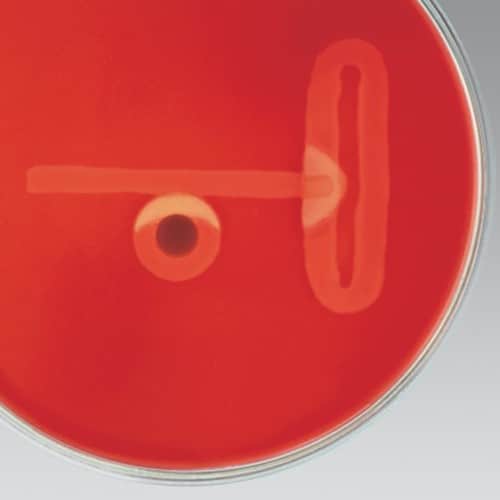
Beta Lysin Disk 25Disk/VL
RM0.00Brand:
Thermo ScientificTM RemelTM
Thermo Scientific™ Beta Lysin Disc is used to detect CAMP factor by group B streptococci.

Biggy Agar 500g
RM1,013.00Brand:
Thermo ScientificTM OxoidTM
Oxoid BiGGY Agar (Nickerson Medium) for the isolation and presumptive identification of Candida spp.
BiGGY Agar, Oxoid Composition
| Typical Formula* |
gm/litre |
| Yeast extract |
1.0 |
| Glycine |
10.0 |
| Glucose |
10.0 |
| Sodium sulphite |
3.0 |
| Bismuth ammonium citrate |
5.0 |
| Agar |
13.0 |
| pH 6.8 ± 0.2 @ 25°C |
BiGGY Agar, Oxoid Preparation:
Suspend 42g in 1 litre of distilled water and bring gently to the boil to dissolve the agar. Allow to cool to 50-55°C. Mix gently to disperse the flocculant precipitate and pour into sterile Petri dishes.
DO NOT AUTOCLAVE THE MEDIUM.
Storage conditions and Shelf life
Store the dehydrated medium at 10-30°C and use before the expiry date on the label.
Medium should be freshly prepared just prior to use.
Precautions
Carry out further tests to confirm identity of isolated yeasts.
Do not use slants of medium because the reactions are unsatisfactory.
The flocculent precipitate present in the molten medium must be evenly suspended whilst dispensing the agar.

Bile Aesculin Agar 500g
RM1,380.00Brand:
Thermo ScientificTM OxoidTM
Isolate and presumptively identify enterococci / Group D streptococci with Thermo Scientific™ Oxoid™ Bile Aesculin Agar (Dehydrated). Bile Aesculin Agar is designed to differentiate between Group D streptococci and non-Group D streptococci.
Group D streptococci hydrolyse aesculin to form aesculetin and dextrose. Aesculin hydrolysis is indicative of a positive result. Bile salts in the medium inhibit Gram-positive bacteria other than enterococci/ Group D streptococci.
Bile Aesculin Agar, Oxoid Composition
| Typical Formula* |
gm/litre |
| Peptone |
14.0 |
| Bile salts |
15.0 |
| Ferric citrate |
0.5 |
| Aesculin |
1.0 |
| Agar |
15.0 |
| pH 7.1 ± 0.2 @ 25°C |
Bile Aesculin Agar, Oxoid Preparation:
Suspend 44.5g in 1 litre of distilled water and bring gently to the boil to dissolve completely. Sterilise by autoclaving at 121°C for 15 minutes.
Storage conditions and Shelf life
Store the dehydrated medium at 10-30°C and use before the expiry date on the label.
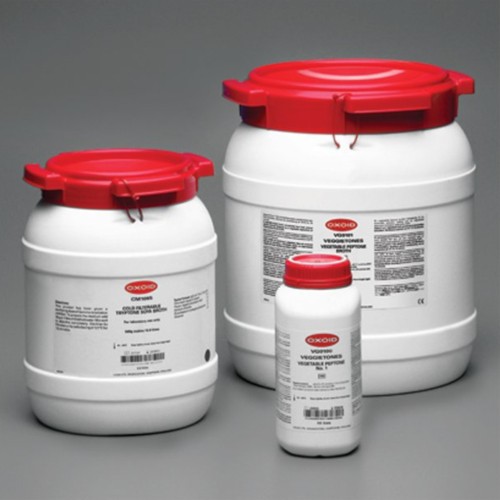
Bile Salts 250g
RM832.00Brand:
Thermo ScientificTM OxoidTM
Oxoid Bile Salts is a standardized ox-bile extract used as a selective inhibitory agent in culture media.

Bile Salts No. 3 250g
RM840.00Brand:
Thermo ScientificTM OxoidTM
Oxoid Bile Salts No. 3 is a specifically refined fraction of bile acid salts.
- Normal working concentration 0.15% w/v.
- Each vial supplements 500mL of medium.
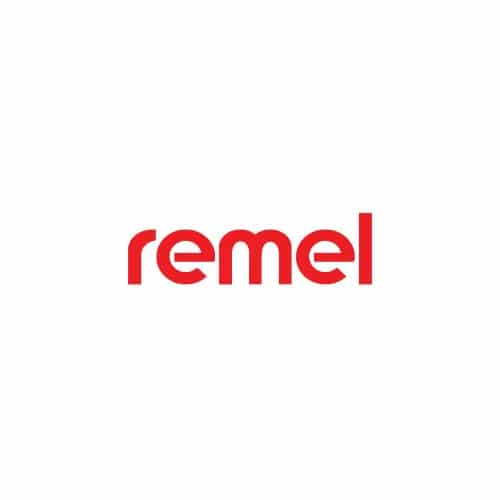
Bile Solubility Reagent (2%) BTL/25ml
RM0.00Brand:
Thermo ScientificTM RemelTM
Thermo Scientific™ Remel 2% Bile Solubility Reagent is for differentiation of S. pneumoniae from other alpha-hemolytic streptococci using the Spot Test or Tube Test.

Bismuth Sulphite Agar (MOD) 500g
RM597.00Brand:
Thermo ScientificTM OxoidTM
Isolate Salmonella typhi and other salmonllae from pathological material, sewage water supplies, food and other products with Thermo Scientific™ Oxoid™ Bismuth Sulphite Agar (Modified Wilson & Blair Medium) (Dehydrated). Bismuth Sulphite Agar is a modification of the original Wilson and Blair Medium and is particularly useful for the isolation of lactose-fermenting salmonellae. The presence of bismuth sulphite and brilliant green make this medium highly selective for salmonellae.
Bismuth Sulphite Agar, Oxoid Composition
| Typical Formula* |
gm/litre |
| Peptone |
5.0 |
| `Lab-Lemco’ powder |
5.0 |
| Glucose |
5.0 |
| Disodium phosphate |
4.0 |
| Ferrous sulphate |
0.3 |
| Bismuth sulphite indicator |
8.0 |
| Brilliant green |
0.016 |
| Agar |
12.7 |
| pH 7.6 ± 0.2 @ 25°C |
Bismuth Sulphite Agar, Oxoid Preparation:
Suspend 20g in 500ml of distilled water in a 1 litre flask. Heat gently with frequent agitation until the medium just begins to boil and simmer for 30 seconds to dissolve the agar. Cool to 50-55°C, mix well to disperse suspension and pour thick plates (25 ml medium per plate). Allow the medium to solidify with the dish uncovered. Larger volumes may be prepared if great care is taken and adequate head space provided.
Dry the plates before use but take care to avoid overdrying. Correctly prepared plates should have a smooth, cream-like opacity with a pale straw colour. There should be no sedimentation of the indicator.
DO NOT OVERHEAT – DO NOT AUTOCLAVE
Storage conditions and Shelf life
Store the dehydrated medium at 10-30°C and use before the expiry date on the label. Note the following comments:
Due to its contents of reactive and hygroscopic substances, dehydrated Bismuth Sulphite Agar quickly deteriorates when exposed to the atmosphere. This is usually indicated by aggregation into a solid non-friable mass, and by the development of a brown coloration. Medium reconstituted from such material is brown, does not become green on storage, and is characterised by loss of differential and selective properties. For this reason the powder should be stored in a cool, dry place and after use the container should be properly closed.
Precautions
Prepared plates of medium should not be stored for longer than two days at 2-8°C; after which time the dye oxidises to give a green medium that can be inhibitory to some salmonellae.
Shigella species are usually completely inhibited.
Salmonella sendai, Salmonella cholera-suis, Salmonella berta, Salmonella gallinarum and Salmonella abortus-equi are markedly inhibited.
It is important that the spreading technique yields well separated colonies. The typical colonial characteristics will not develop if the growth is too heavy or confluent; Salmonella typhi colonies will appear light green in these circumstances. Therefore, when in doubt, almost any growth on the medium should be subject to further tests.

Blank Antimicrobial
RM0.00Brand:
Thermo ScientificTM OxoidTM

Blood Agar Base 500g
RM351.00Brand:
Thermo ScientificTM OxoidTM
Oxoid Blood Agar Base is a nonselective general purpose medium which may be enriched with blood or serum.
Blood Agar Base, Oxoid Composition
| Typical Formula* |
gm/litre |
| `Lab-Lemco’ powder |
10.0 |
| Peptone Neutralised |
10.0 |
| Sodium chloride |
5.0 |
| Agar |
15.0 |
| pH 7.3 ± 0.2 |
Blood Agar Base, Oxoid Preparation:
Suspend 40g in 1 litre of distilled water. Bring to the boil to dissolve completely. Sterilise by autoclaving at 121°C for 15 minutes.
For blood agar, cool the Base to 50°C and add 7% of Defibrinated Horse Blood SR0050. Mix with gentle rotation and pour into petri dishes or other containers.
Storage conditions and Shelf life
Store the dehydrated medium at 10-30°C and use before the expiry date on the label.
Store the prepared plates of medium at 2-8°C.
Precautions
The haemolytic reactions of organisms inoculated on to this medium will be affected by the animal blood used e.g. horse or sheep and the incubation conditions e.g. aerobic, capnoeic or anaerobic.
When horse blood is added to the medium Haemophilus haemolyticus colonies will produce beta-haemolysis and mimic Streptococcus pyogenes.

Blood Agar Base No. 2 500g
RM356.00Brand:
Thermo ScientificTM OxoidTM
Cultivate and isolate fastidious pathogens and other microorganisms with Thermo Scientific™ Oxoid™ Blood Agar Base No. 2 (Dehydrated). The specially designed formulation meets the need for a nutritious blood agar which permits maximum recovery of delicate organisms without interfering with their hemolytic reactions. Without any additions, the medium can be used for short-term maintenance of stock cultures. And with the addition of blood, the medium becomes suitable for the determination of the hemolytic reactions which are important diagnostic criteria for many organisms.
Blood Agar Base No. 2, Oxoid Composition
| Typical Formula* |
gm/litre |
| Proteose peptone |
15.0 |
| Liver digest |
2.5 |
| Yeast extract |
5.0 |
| Sodium chloride |
5.0 |
| Agar |
12.0 |
| pH 7.4 ± 0.2 @ 25°C |
|
Blood Agar Base No. 2, Oxoid Preparation:
Suspend 40g in 1 litre of distilled water. Bring to the boil to dissolve completely. Sterilise by autoclaving at 121°C for 15 minutes. Cool to 45-50°C and add 7% sterile blood.
Mix with gentle rotation and pour into sterile dishes or other containers.
Storage conditions and Shelf life
Store the dehydrated medium at 10-30°C and use before the expiry date on the label.
Store the prepared plates of medium at 2-8°C.
Precautions
Brucella cultures are highly infective and must be handled under properly protected conditions. Incubate in 5-10% carbon dioxide atmosphere for 24-48 hours.
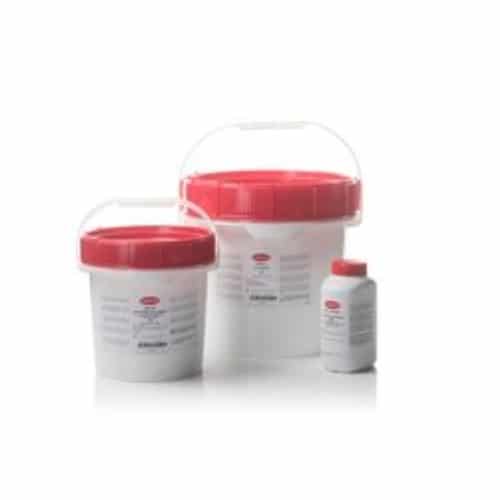
Blood Free Campy Select Agar 500g
RM683.00Brand:
Thermo ScientificTM OxoidTM
Isolate Campylobacter jejuni, Campylobacter coli and Compylobacter laridis using Thermo Scientific™ Oxoid™ Campylobacter Blood-Free Selective Agar Base (Dehydrated) when used with CCDA Selective Supplement SR0155. Campylobacter Blood-Free Selective Agar Base is based on the original formulation described by Bolton et.al which was developed to replace blood with charcoal, ferrous sulphate and sodium pyruvate. For improved selectivity cephazolin in the formulation was replaced by cefoperazone as a selective agent.
Campylobacter Blood-Free Selective Agar Base, Oxoid Composition
| Typical Formula* |
gm/litre |
| Nutrient Broth No.2 |
25.0 |
| Bacteriological charcoal |
4.0 |
| Casein hydrolysate |
3.0 |
| Sodium desoxycholate |
1.0 |
| Ferrous sulphate |
0.25 |
| Sodium pyruvate |
0.25 |
| Agar |
12.0 |
| pH 7.4 ± 0.2 @ 25°C |
|
Campylobacter Blood-Free Selective Agar, Oxoid Preparation:
Suspend 22.75g of Campylobacter Blood-Free Selective Agar Base in 500ml of distilled water and bring to the boil to dissolve. Sterilise by autoclaving at 121°C for 15 minutes. Cool to 50°C. Aseptically add 1 vial of CCDA Selective Supplement SR0155 reconstituted as directed. Mix well and pour into sterile Petri dishes.
Storage conditions and Shelf life
Store the dehydrated medium at 10-30°C and use before the expiry date on the label.
Store the selective supplement in the dark at 2-8°C and use before the expiry date on the label.
The prepared medium may be stored for up to 2 weeks at 2-8°C .
Blue Light LED Transilluminator (21cm x 21cm)
RM0.00Brand:
Cleaver Scientific
Our new SAFEVIEW LED transilluminator offers the user a safe way to view and document their samples. This light source also has the added advantage in that is does not damage DNA or RNA that you would normally associate with UV light. They are supplied as a standalone unit and can be used with the microDOC, as part of a fully integrated gel documentation system. With a large surface area, each transilluminator serves as the perfect workstation for viewing and working with fluorescently-stained protein and nucleic acid gels.
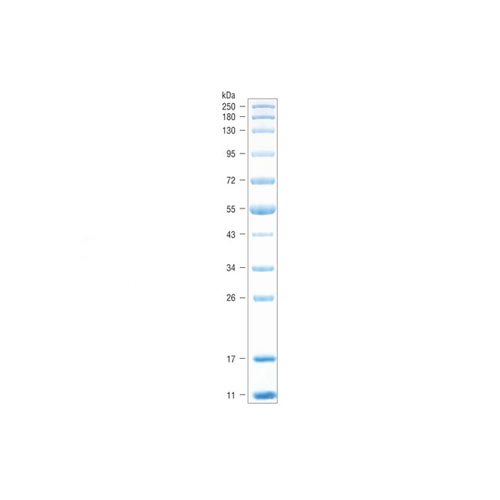
Blue Prestained Protein Standard, Broad Range (11-250kDa)
Brand:
New England Biolabs
This product is a direct replacement of NEB# P7706 (Blue Prestained Protein Standard, Broad Range 11-190 kDa).
The Blue Prestained Protein Standard, Broad Range is a mixture of highly pure, recombinant, prestained proteins, covalently coupled with a blue chromophore, that resolves into 11 sharp bands when electrophoresed.
– Allows approximate molecular weight determination when performing SDS-PAGE analysis.
– Applications include verification of Western transfer efficiency on membranes and fluorescent imaging of SDS-PAGE.
– Direct loading, additional loading buffer and heat incubation not required
– Recombinant proteins with no detectable protease contaminating activities
– Optimal stability for up to 24 months
BluView Transilluminator
RM0.00Brand:
Biologix
This item is not available at the moment. Please contact us for more information.
Characteristics
•Compact, and easy to carry
• Aluminum alloy casing design
• Low heat dispersion
• Energy saving product
• 470nm harmless blue light for direct human contact
• Use accessories to document experiment results by a smart phone

Bolton Broth 500g
RM517.00Brand:
Thermo ScientificTM OxoidTM
Bolton Broth Base, Oxoid Composition
| Typical Formula* |
gm/litre |
| Meat peptone |
10.0 |
| Lactalbumin hydrolysate |
5.0 |
| Yeast Extract |
5.0 |
| Sodium chloride |
5.0 |
| Alpha-ketoglutaric acid |
1.0 |
| Sodium pyruvate |
0.5 |
| Sodium metabisulphite |
0.5 |
| Sodium carbonate |
0.6 |
| Haemin |
0.01 |
| pH 7.4 ± 0.2 @ 25°C |
Bolton Broth, Oxoid Preparation:
Add 13.8g of Bolton Broth to 500ml of distilled water. Sterilise by autoclaving at 121°C for 15 minutes. Cool to 50°C. Aseptically add 25ml Laked Horse Blood SR0048 and 1 vial of Bolton Broth Selective Supplement SR0183, reconstituted as directed. Mix well and distribute into sterile screw top containers.
Storage conditions and Shelf life
Store the dehydrated medium at 10-30°C and use before the expiry date on the label.
Store the prepared medium at 2-8°C for up to 2 weeks.

